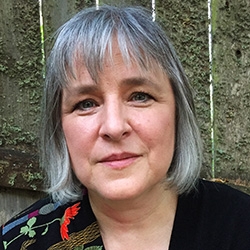
Search Results: saying no
-
Ever have a hard time saying "no" to someone, or feel obligated to say yes? Here's an exercise that can help you notice where you are placing yourself as someone who "has to" say yes; the needs in the other person making the request; what you want to say "yes" to (regarding your needs and theirs) by saying "no"; what prevents you from saying "yes"; plus your request and how you might express it.
-
Hearing "no" can bring emotional pain, but it can be delivered in a way that minimizes discomfort. We can find the gift in the request, express feelings and needs instead of saying "no," and offer an alternative solution that supports all parties. This approach fosters honesty, respect, and understanding, while setting boundaries if necessary to protect oneself. Clear communication reduces the likelihood of conflict.
-
-
It can be difficult to be authentic when that means saying no. So how do we say no in a way that invites people to listen? Here are our four top tips for finding the courage to say no.
-
In this NVC Life Hack, we look at those circumstances when we're saying yes ... but only kinda! Because we're still actually saying no. Shantigarbha and Gesine look at the needs that aren't being met.
-
When asking for support from another, you are most likely to enjoy receiving that support when the person giving support is giving from the heart—from a place of joy or delight. Inviting them to say "no" is a way of encouraging an authentic response, a response you can trust more fully.
-
Using the example of being met with chronic lateness, here are three steps to setting boundaries early in a dating situation or relationship.
-
When someone offers continual unsoliticed feedback or advice, setting a boundary may not be easy if you care about how they might hear you. And if you don't set a boundary, you may eventually become resentful and say something you regret. Instead, here are six ways to respond, with varying degrees of effectiveness.
-
Struggling to say "no"? Here are ways you change your adjacent mind patterns. First, note the differences between those who respect boundaries and those who often don't. Second, review situations in which you lost track of your choice. And rehearse what it would sound, look, and feel like if you kept connection to your choice. Third, seek validation of your experience - from a grounded and mindful (non-reactive) state.
-
There are ways to reduce obstacles to setting boundaries. Notice unconscious ways you sacrifice yourself in order to avoid boundary setting. List of signs that a life-serving boundary is needed, but you're denying this. Realizing you consistently abandoned your needs may require time to process and mourn before you can set boundaries consistently. With practice, you can recognize boundaries care for yourself and others.
-
NVC practice is based on several key assumptions and intentions. When we live based on these assumptions and intentions, self-connection and connection with others become increasingly possible and easy, helping us contribute to a world where everyone’s needs are attended to peacefully.
-
- Discover how to bring resonance into your conversations with others
- Learn how resonant language and NVC empathy come together
- Practice consent and saying “no”, even when it is difficult
- Feel the movement into more intimacy in your relationships!












